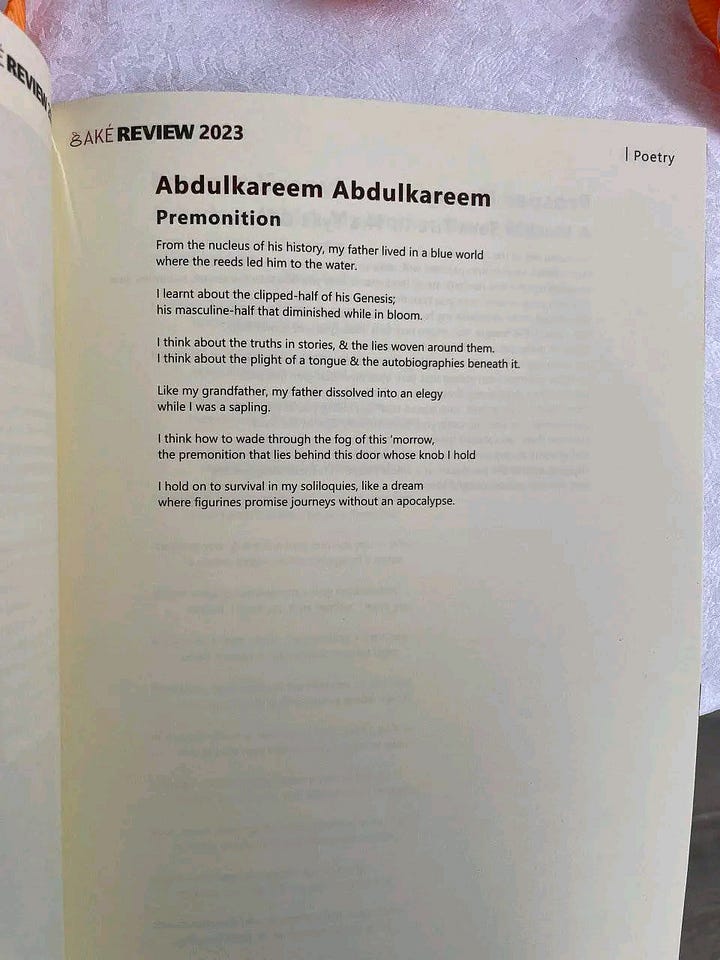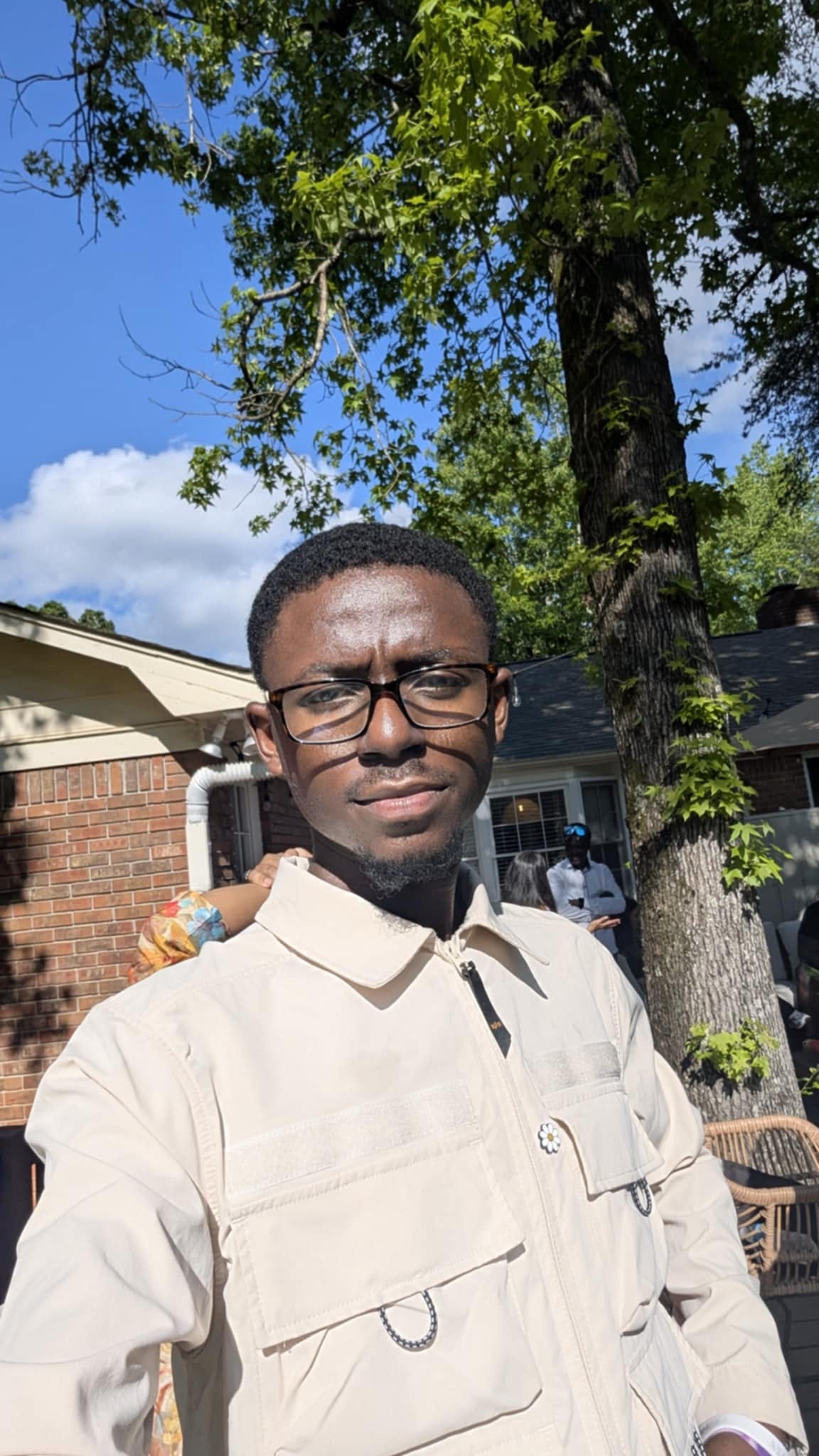Who is Abdulkareem Abdul Kareem?
Abdulkareem Abdulkareem (he/him) is a Nigerian writer and linguist. He graduated with a B.A. in Linguistics from the University of Ilorin. He is the author of ‘Loss is a Door’ selected by Kwame Dawes and Chris Abani for the New-Generation African Poets, a Chapbook Box Set (Akashic Books, 2025). He is a member of the Frontier's Collective. He is a recipient of the Hill Top Creative Writing Award for Excellence, 2023. He won the University of Ilorin Students Union Writers Competition (Poetry Category) 2022. His works appear in the National Museum of Language, POETRY, Havard’s Transition Magazine, Waxwing, Poetry Wales, Uncanny Magazine, LOLWE, Southern Humanities Review, ISELE, Shallow Tales Review, Nigeria News Direct, & elsewhere. He lives in Tuscaloosa where he is studying for an MFA in Creative Writing at the University of Alabama.
In what way does your background in linguistics contribute to your poetic style?
Linguistics is described as the study of language whereas poetry can also be classified as a way of manipulating language. Basically, both go hand in hand. Most especially, with the study of syntax and semantics. Even in everything. I’m very conscious of how I use language and what I explore.
Semantics is the study of meaning in language, and while poetic language can deviate from the rules of ordinary language, it still relies on meaning to be significant. There are arguments that poetry might have a unique semantic advantage because it can tap into deeper conceptual patterns within language.
I’ve written multiple language-influenced poems, they wouldn’t have been possible without linguistics. I’m also working on a project that explores language as parts of it. So yeah, these are some of the ways linguistics influence what I write about and how I write about it.
You wrote a poem titled, Self-portrait with Phonemic Analysis. What inspired the title? Do you have other poems with titles taken from linguistic terms?
The poem was inspired inside a generative phonology class. I thought about exploring phonemic analysis in a poem without making it the goal of the poem. That was how it came up. And that's not the only poem I've written using linguistics terms, I've also written other poems influenced by language either through mistranslation, language degradation, dialects or accents, etc.
By the virtue of studying linguistics, the science of language, can I become a poet?
Of course, yes. You can become a poet. But then, what you study doesn’t really matter and won’t decide whether you can become a poet or not. The main thing about studying linguistics is that it makes you curious about language. Most especially, second language writing.
In what ways can a student of linguistics contribute to the literary space?
A linguistics student can contribute by exploring language-related themes. Writing bilingual or multilingual poetry through cultural contexts. Exploring dialects, mistranslation and how language reflects identity and culture. Also exploring how language can be used as a tool of oppression, etc.









